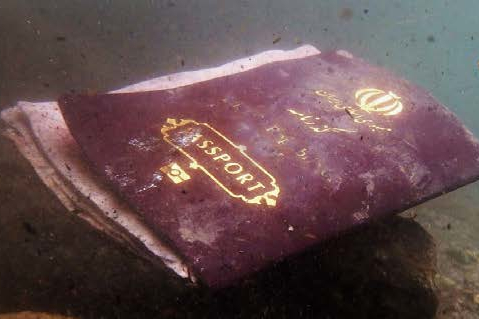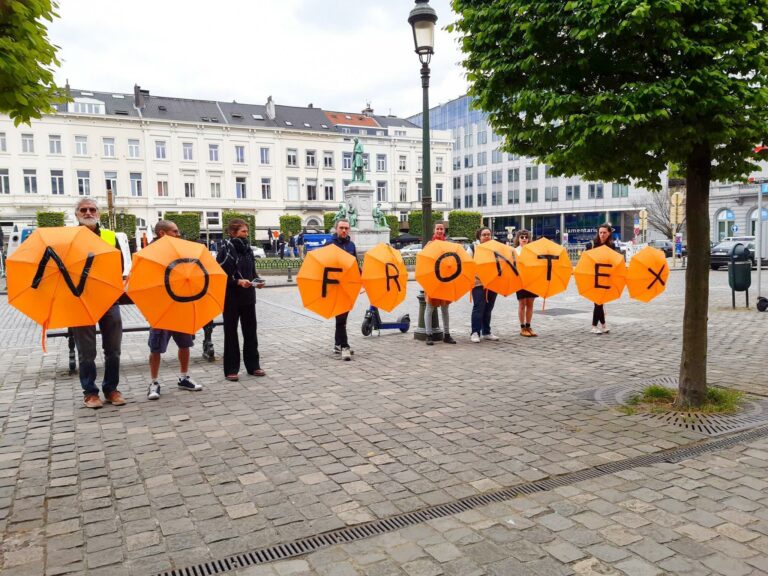Spain: Launch of the "Vidas sin rastro" campaign, for the rights of the dead and missing migrants at the Southern border
Topic
Country/Region
10 May 2022
Today, 10 May 2022, begins the campaign "Vidas Sin Rastro", "For the rights of the dead and disappeared at the southern border and those of their families", initiated by the Asociación Pro Derechos Humanos de Andalucía (APDHA) and the Grupo puente de activistas internacionales.
Support our work: become a Friend of Statewatch from as little as £1/€1 per month.

Statement originally published in French by Migreurop (Statewatch is a member of Migreurop) and in Spanish by APDHA. More than 100 organizations have given their support to the manifesto and its demands; signatory organizations can be seen on the APDHA website.
Since the first documented shipwreck of a patera at the Southern border of Europe in 1988, more than 12,208 people have died as a result of migration policies and practices, according to APDHA figures.
The objective of this campaign, which has received the support of 102 organisations, is to denounce the lack of effective responses guaranteeing the rights of the dead, disappeared and their families at the Southern border, and to demand the adoption and adaptation of existing mechanisms and instruments on disappearances, identification and repatriation of the dead to the transnational context of migration.
The manifesto will be presented in public and a complaint will be filed with the Spanish Ombudsman.
MANIFESTO FOR THE RIGHTS OF THE DEAD AND MISSING PERSONS AT THE SOUTHERN BORDER AND THOSE OF THEIR FAMILIES
The number of people who lose their lives in the migratory journey, from their country of origin to Spain, trying to reach Europe through the Southern Border, is of an immeasurable quantity. The progressive increase of this reality is confirmed by the data of last year (2021), in which the number of people dead or missing on the migration route to Spain is at least 2,126, 24% more than the year before, [1] the highest number since the first case of death was officially registered in 1988, at Los Lances beach (Tarifa, Cadiz). A total of 12,2082 lives tragically taken, which could have been avoided during these more than 30 years.
In this regard, we are aware that current migration policies, based on the externalization and militarization of borders, and the absence of legal and safe routes are responsible for the fact that not all people who begin their migration projects manage to reach their destination country alive. Therefore, there are many families who want to know if their relatives have made it or, on the contrary, have died or disappeared in the Mediterranean Sea or in the Atlantic Ocean. Families who begin the search for their loved ones encounter too many obstacles and difficulties and, on many occasions, the answers depend more on the good will of the people involved in these processes than on real and adequate policies and measures to guarantee the rights of the deceased and missing persons in the Southern Border and their families.
In the end, this institutional lack of protection and the lack of a framework that addresses the transnational dimension leads to violations of essential rights that affect human dignity, the post mortem rights of those who have died and the right to know the truth that protects the families. This inaction and lack of transparency is a voluntary form of punishment and/or torture of families and dehumanization of people who decide, or have no choice, but to start a migratory process.
For all these reasons, we ask from the Spanish State the clear defense, before the European institutions, of another migratory model, based on rights, and the recognition of legal and safe ways to put an end to the suffering, deaths and disappearances in the Southern Border due to the current migratory policies. And, urgently and immediately we request to:
- Establish an Office of Missing and Deceased Persons to provide complete assistance and support to families in the denunciation, search and location of their loved ones, as well as in the process of identification of deceased persons.
- Adapt the legal framework for disappearances, declarations of absence and death to the transnational reality of migrations, making it easier for families to resolve daily issues that may be experienced in cases of missing persons.
- Create and adjust the protocols, tools and resources of the Institutes of Medicine and Forensic ensuring the same treatment and performance in the processes of identification of the deceased, in order to guarantee the location of their relatives and the right to know the truth, regardless of the place where the body is found.
- Establish a specific protocol for the DNA bank that, in coordination and cooperation with the countries of origin, ensures the search, location and identification of persons who have died at the Southern Border and guarantees the matching of the sample with that of their relatives.
- Provide training on specific aspects of migratory realities and the needs of the families of missing and deceased persons to civil servants and employees of the public administration and other entities involved in these processes.
- Establish agreements with the countries of origin and transit to ensure the situation and the rights of the deceased and missing persons and their families, in the application of all necessary measures to accompany and support them in these circumstances.
- To assume and to establish the channels relating to the acquired commitments deriving from international pacts and international agreements that guarantee the right to save life.
May 2022
Our work is only possible with your support.
Become a Friend of Statewatch from as little as £1/€1 per month.
Spotted an error? If you've spotted a problem with this page, just click once to let us know.

